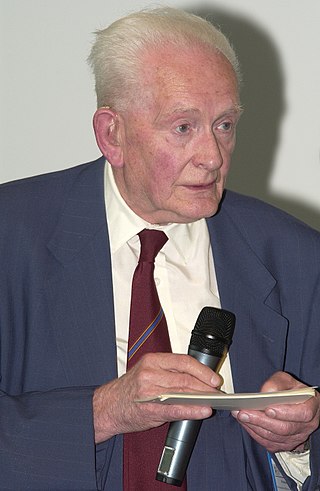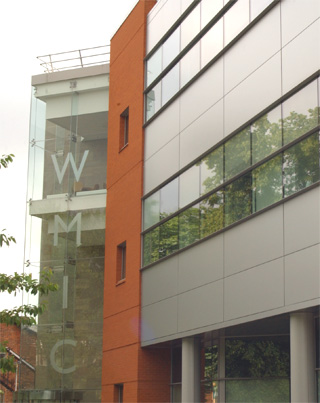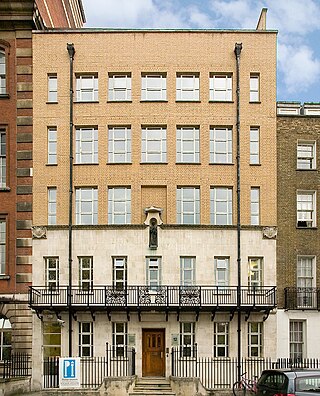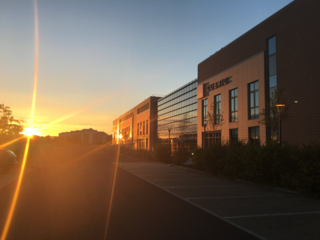
Medical imaging is the technique and process of imaging the interior of a body for clinical analysis and medical intervention, as well as visual representation of the function of some organs or tissues (physiology). Medical imaging seeks to reveal internal structures hidden by the skin and bones, as well as to diagnose and treat disease. Medical imaging also establishes a database of normal anatomy and physiology to make it possible to identify abnormalities. Although imaging of removed organs and tissues can be performed for medical reasons, such procedures are usually considered part of pathology instead of medical imaging.

Neuroimaging is the use of quantitative (computational) techniques to study the structure and function of the central nervous system, developed as an objective way of scientifically studying the healthy human brain in a non-invasive manner. Increasingly it is also being used for quantitative research studies of brain disease and psychiatric illness. Neuroimaging is highly multidisciplinary involving neuroscience, computer science, psychology and statistics, and is not a medical specialty. Neuroimaging is sometimes confused with neuroradiology.
The Cognition and Brain Sciences Unit is a branch of the UK Medical Research Council, based in Cambridge, England. The CBSU is a centre for cognitive neuroscience, with a mission to improve human health by understanding and enhancing cognition and behaviour in health, disease and disorder. It is one of the largest and most long-lasting contributors to the development of psychological theory and practice.

John Rowland Mallard OBE FRSE FREng was an English physicist and professor of Medical Physics at the University of Aberdeen from 1965 until his retirement in 1992. He was known for setting up and leading the team that developed the first magnetic resonance imaging (MRI) full body scanner and, in particular, positron emission tomography (PET). He was born in Kingsthorpe, Northampton, England.

The University of Manchester Wolfson Molecular Imaging Centre (WMIC) is a purpose-built molecular imaging research facility. Based on the site of the Christie Hospital in Manchester, the Centre aims to develop clinical research and development in medical imaging in areas of oncology, neuroscience and psychiatry research.

The Wellcome Centre for Human Neuroimaging at University College London is a world-leading interdisciplinary centre for neuroimaging research based in London, United Kingdom. Researchers at the Centre use expertise to investigate how the human brain generates behaviour, thoughts and feelings and how to use this knowledge to help patients with neurological and psychiatric disorders. Human neuroimaging allows scientists to non-invasively investigate the brain structure and functions including Action, Decision Making, Emotion, Hearing, Language, Memory, Navigation, Seeing, Self awareness, Social Behaviour and the Bayesian Brain
Cambridge Brain Analysis (CamBA), is a software repository developed at the Brain Mapping Unit, Department of Psychiatry, University of Cambridge, UK and contains software pipelines for functional magnetic resonance imaging (fMRI) analysis. It is designed for batch processing and its main graphical user interface offers a spreadsheet-like look-and-feel.
The Athinoula A. Martinos Center for Biomedical Imaging, usually referred to as just the "Martinos Center," is a major hub of biomedical imaging technology development and translational research. The Center is part of the Department of Radiology at Massachusetts General Hospital and is affiliated with both Harvard University and MIT. Bruce Rosen is the Director of the Center and Monica Langone is the Administrative Director.
Robert Turner is a British neuroscientist, physicist, and social anthropologist. He has been a director and professor at the Max Planck Institute for Human Cognitive and Brain Sciences in Leipzig, Germany, and is an internationally recognized expert in brain physics and magnetic resonance imaging (MRI). Coils inside every MRI scanner owe their shape to his ideas.

Positron emission tomography–magnetic resonance imaging (PET–MRI) is a hybrid imaging technology that incorporates magnetic resonance imaging (MRI) soft tissue morphological imaging and positron emission tomography (PET) functional imaging.
The following outline is provided as an overview of and topical guide to brain mapping:

Katya Rubia is a professor of Cognitive Neuroscience at the MRC Social, Genetic and Developmental Psychiatry Centre and Department of Child and Adolescent Psychiatry, both part of the Institute of Psychiatry, King's College London.
Synthetic MRI is a simulation method in Magnetic Resonance Imaging (MRI), for generating contrast weighted images based on measurement of tissue properties. The synthetic (simulated) images are generated after an MR study, from parametric maps of tissue properties. It is thereby possible to generate several contrast weightings from the same acquisition. This is different from conventional MRI, where the signal acquired from the tissue is used to generate an image directly, often generating only one contrast weighting per acquisition. The synthetic images are similar in appearance to those normally acquired with an MRI scanner.

The Cardiff University Brain Research Imaging Centre (CUBRIC) is a brain imaging centre, part of Cardiff University's Science and Innovation Campus in Cardiff, Wales, United Kingdom. When it expanded in 2016, it was considered the most advanced brain imaging centre in Europe.

Irene Mary Carmel Tracey is Vice-Chancellor of the University of Oxford and former Warden of Merton College, Oxford. She is also Professor of Anaesthetic Neuroscience in the Nuffield Department of Clinical Neurosciences and formerly Pro-Vice-Chancellor at the University of Oxford. She is a co-founder of the Oxford Centre for Functional Magnetic Resonance Imaging of the Brain (FMRIB), now the Wellcome Centre for Integrative Neuroimaging. Her team’s research is focused on the neuroscience of pain, specifically pain perception and analgesia as well as how anaesthetics produce altered states of consciousness. Her team uses multidisciplinary approaches including neuroimaging.
Maria Natashini "Natasha" Rajah is a Canadian neuroscientist who is a Full Professor at the Department of Psychology, Toronto Metropolitan University. Prior to joining Toronto Metropolitan University in August 2023, she was Full Professor at the Department of Psychiatry at McGill University from 2005 to July 2023, and was the inaugural Scientific Director of the Cerebral Imaging Center (CIC) at the Douglas Research Centre from 2011 to 2021. She is a cognitive neuroscientist who is interested in episodic memory, ageing and dementia. Her research uses functional magnetic resonance imaging to investigate how sex, gender, and social determinants of health interact with age and affect the neural networks responsible for episodic memory encoding and retrieval.
Charlotte Stagg is a British neurophysiologist who is a professor at the University of Oxford. She leads the Physiological Neuroimaging Group.
Franklin Imo Aigbirhio, is a Nigerian-born British chemist and academic specialising in biomedical imaging research. Since 2014 he has been the Professor of Molecular Imaging Chemistry at the University of Cambridge.

Karla Loreen Miller is an American neuroscientist and professor of biomedical engineering at the University of Oxford. Her research investigates the development of neuroimaging techniques, with a particular focus on Magnetic Resonance Imaging (MRI), neuroimaging, diffusion MRI and functional magnetic resonance imaging. She was elected a Fellow of the International Society for Magnetic Resonance in Medicine in 2016.










